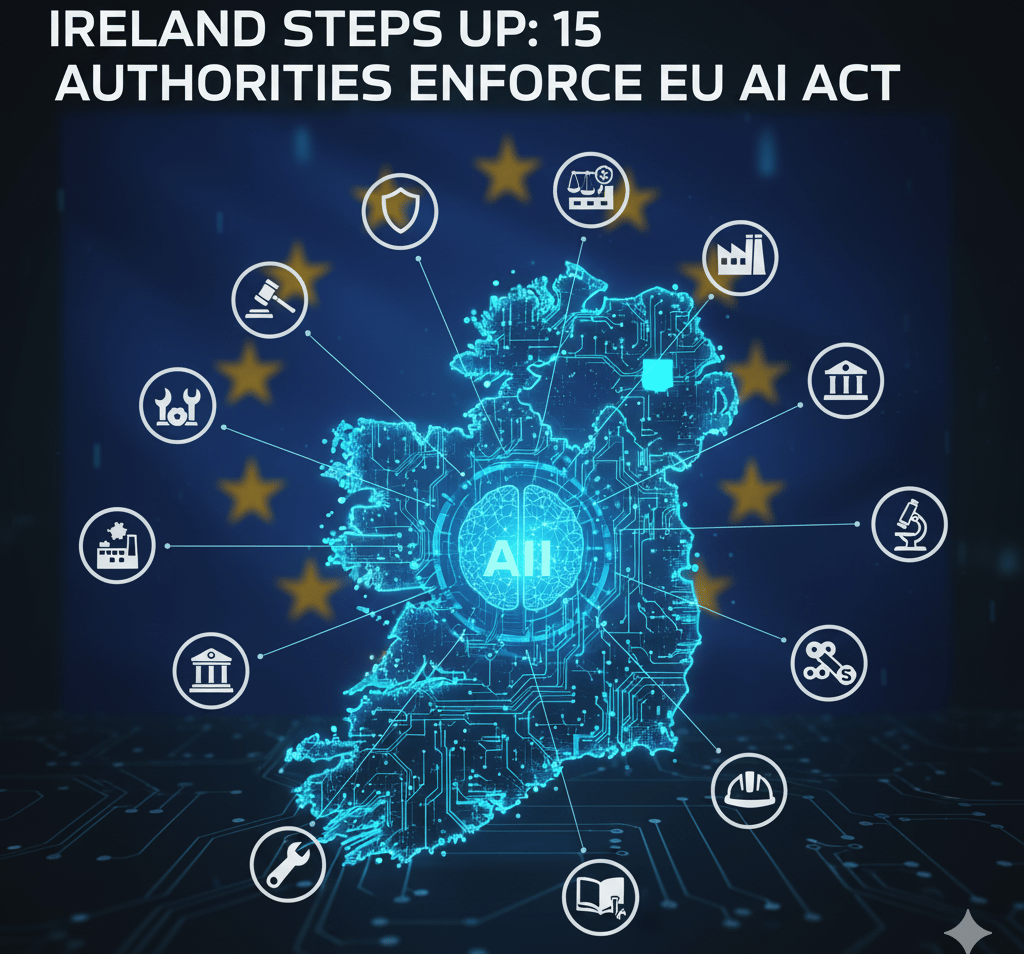Ireland Steps Up: 15 Authorities Tapped to Enforce EU AI Act


Ireland Steps Up: 15 Authorities Tapped to Enforce EU AI Act
Ireland has become one of the first EU member states fully prepared to enforce the landmark EU AI Act, designating 15 national authorities to oversee compliance. This proactive move signals a pivotal shift from legislative theory to practical enforcement, putting AI developers and providers on notice that regulatory scrutiny is imminent.
The Dawn of AI Regulation
The EU AI Act is a pioneering piece of legislation designed to regulate artificial intelligence based on its potential risk to society. It establishes a tiered system:
Unacceptable Risk: AI systems that are a clear threat to people's safety, livelihoods, and rights are banned. This includes social scoring by governments and manipulative AI.
High-Risk: AI used in critical areas like medical devices, recruitment, and law enforcement will face strict requirements. These include risk management, data governance, transparency, human oversight, and high levels of accuracy and security.
Limited Risk: AI systems like chatbots must be transparent, ensuring users know they are interacting with a machine.
Minimal Risk: The vast majority of AI systems (e.g., spam filters, AI in video games) fall into this category and have no new obligations.
The Act aims to foster trust and ensure that AI developed and used in the EU is safe, transparent, and respects fundamental human rights.
Ireland's Enforcement Vanguard
By appointing a comprehensive network of supervisory bodies, Ireland is setting a clear precedent for the rest of the bloc. The country's strategic position as the European headquarters for many global tech giants makes this move particularly significant.
The 15 designated authorities include:
The Media Commission will act as the national AI coordinator, ensuring a consistent application of the Act.
The Data Protection Commission (DPC), already a powerful regulator under GDPR, will oversee AI systems' compliance with data protection principles.
Other key bodies include the Competition and Consumer Protection Commission (CCPC) and the Central Bank of Ireland, which will supervise AI use in their respective domains.
This multi-authority approach ensures that expertise from different sectors is leveraged to scrutinize AI systems effectively, from consumer rights to financial stability.
What This Means for Tech Companies
For AI providers, especially those with a base in Ireland, the abstract deadlines of the AI Act have suddenly become very real. The phased rollout of the legislation means that rules on banned AI systems will apply as early as mid-2025.
Companies must now:
Assess their AI systems against the Act's risk categories.
Ensure compliance with the specific obligations for their risk level.
Prepare for engagement with these newly appointed Irish authorities.
Non-compliance carries hefty penalties, with fines reaching up to €35 million or 7% of global annual turnover, whichever is higher. With concrete enforcement bodies now in place, the grace period for preparation is officially over. Ireland's readiness is a clear signal to the tech world: the age of Ultron AI regulation has begun.